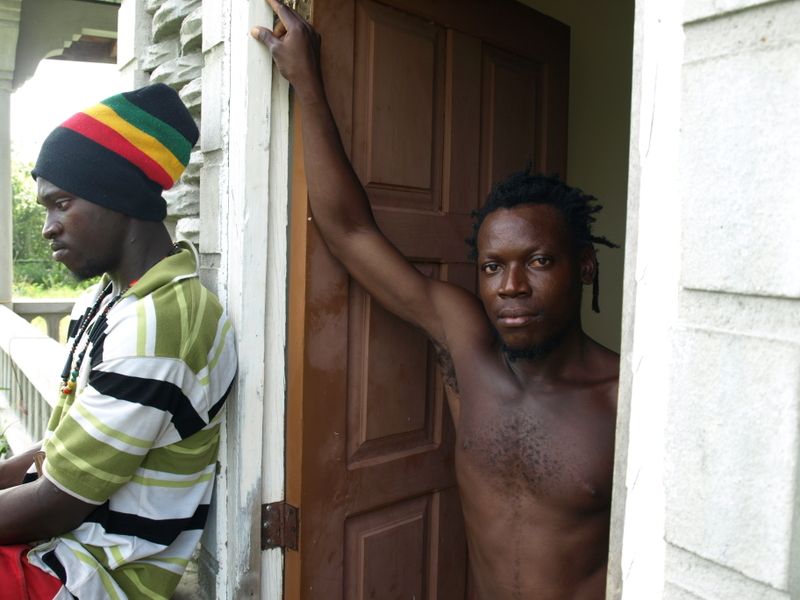One aspect of what I think is a nascent insurgency is the ruthlessness of all sides involved (for simplicity's sake I count three; the authorities – police and military; the drug lords; and the Afro-Guyanese gangs). In the mostly Afro-Guyanese villages of Buxton/Friendship, a farming community of about 10,000 near the site of the first massacre in Lusignan, the military and the police have gone in and razed farm fields on the village's edge, claiming that the criminal gang responsible might be hiding there. Buxton has a history of resistance, and most everyone acknowledges that the gangs have used it as a base for years. And that's because police and military have earned resentment for predictably heavy-handed, harsh treatment. As a result, some people there are sympathetic to anyone who could stand up to authorities.
I visited a farmers meeting. Because of what people called the military's "intervention" many had lost mature crops, mango trees, bananas, plantains, as well as sugar cane, which would take more than a year to grow back. Recompense was promised, but I was told hadn't arrived yet, so international donors were about to select 40 families to give 100 chickens apiece to. The government couldn't have picked a worse time to trample its own food supply – the global food crisis had caused prices for basics like flour to shoot up 25 percent in a matter of days. Protesters were marching in, and the president announced immediate wage increases for all government employees, in an effort to spur private businesses to do the same.
After the meeting I walked down a dusty path lined with simple wooden homes up on stilts, until the houses thinned, and flat farm fields surrounded me. I saw where bulldozers had knocked everything down. I followed the sound of some really loud reggae music until I came to a little compound of Rastafarians. "You walk here by youself?" they asked incredulously. "You a brave man." I talked with them a while. The man of the house had woken one night to police and military knocking on his door. He said they were looking for 'Rasta man,' so they dragged him outside, threatened to shoot him, and cut off his dreadlocks with a knife. Bullet holes pocked his concrete house. "I a construction worker," the man explained, not a fighter. They detained him, but never charged him.
Just then an elderly lady, a teacher who had been at the farmer's meeting, pedaled up on her bicycle. "I been looking for you," she told me. She was worried sick, she said. You can't just go wandering around Buxton. When I asked her and the others what the specific danger might be – robbery? Racial animosity because I'm white? – they all said those weren't the reasons. It was just distrust of outsiders, that I might be suspected of working with the government. In reality, everyone I met was friendly, helpful and curious.
